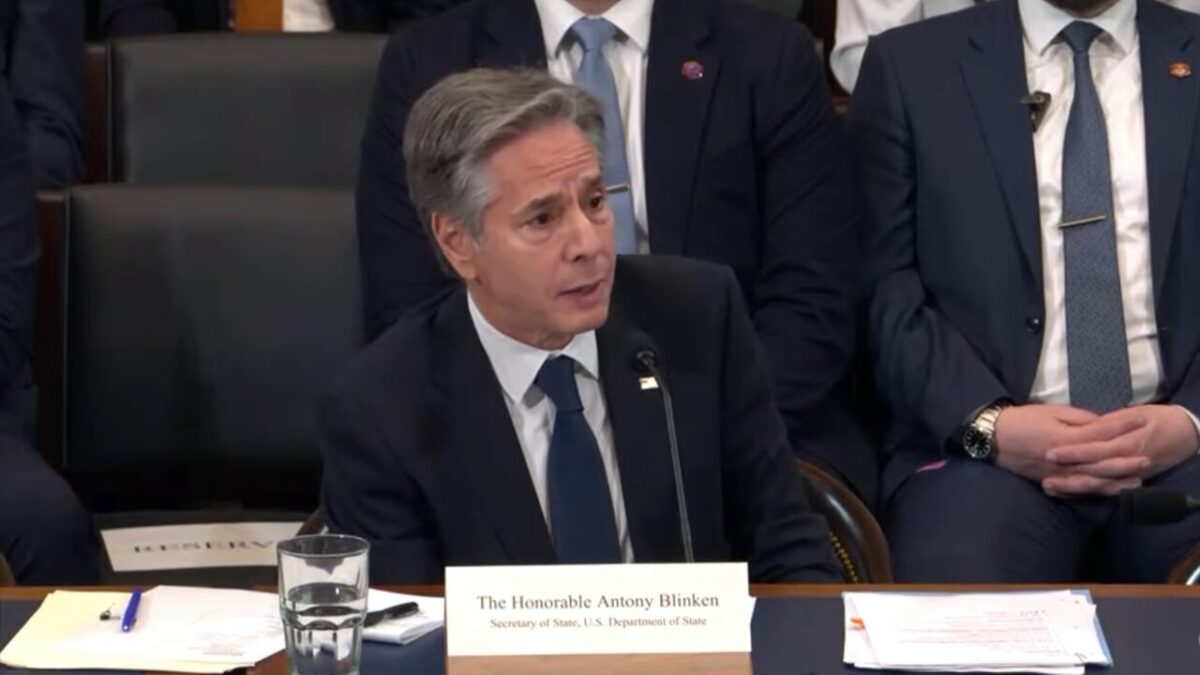WASHINGTON — Secretary of State Antony J. Blinken faced sharp criticism from Republican lawmakers during his testimony before the House Foreign Affairs Committee on Wednesday, defending the Biden administration’s handling of the 2021 withdrawal from Afghanistan.
Amid heated exchanges, Mr. Blinken emphasized that no one, including U.S. intelligence agencies, anticipated the swift collapse of the Afghan government and military that allowed the Taliban to seize control of Kabul.
“Very simply, because no one anticipated that the government and the Afghan Armed Forces would collapse as quickly as they did,” Mr. Blinken said. “Every intelligence assessment we had anticipated that Kabul would remain in the hands of the government, the hands of the Afghan Armed Forces, through the balance of the year.”
Criticism from GOP lawmakers
Committee Chairman Michael McCaul accused Mr. Blinken of ignoring warning signs before the withdrawal, referencing dissent cables from embassy staff that warned of Afghanistan’s imminent collapse. “You personally read this, sir, and cleared it,” Mr. McCaul said. “Why did you ignore the cries for help? Why did you leave this embassy open?”
Representative Mike Lawler condemned what he called a “disastrous legacy” of U.S. foreign policy, linking the Afghanistan withdrawal to subsequent crises. “Starting with the disastrous withdrawal in Afghanistan that resulted in the death of 13 U.S. service members, creating 13 Gold Star families—families our Vice President hasn’t even been bothered to meet with,” Mr. Lawler said.
Lawler criticized U.S. policies under Mr. Blinken’s tenure, citing Russia’s invasion of Ukraine, escalating tensions over Taiwan, and Iran’s illicit oil trade funding terrorist groups. “This is your legacy,” Lawler said. “I hope you read the report in full and reflect upon that.”
Representative Brian Mast questioned the administration’s continued financial aid to Afghanistan, including funds reportedly reaching the Taliban. “We are literally sending tens of millions of dollars to the Taliban,” Mr. Mast said, citing cash transfers for food aid and programs like carpet-weaving and agricultural training.
Mast also raised concerns about transparency, criticizing the lack of U.S. diplomatic presence on the ground to verify the use of funds. He expressed skepticism about a $3.5 billion Afghan fund meant to ensure “macro financial stability.” “What the hell does that mean?” he asked.
The Ghani conversation
Mr. Blinken revealed details of a conversation with then-Afghan President Ashraf Ghani the night before Kabul fell. “He told me that he wanted to continue working on getting an agreement with the Taliban, but if he couldn’t, he would stay and fight to the death,” Mr. Blinken said. “He left the next day.”
The secretary defended efforts to negotiate with the Taliban under the terms of the Doha agreement, signed during the Trump administration, which he said eroded confidence among Afghan forces and contributed to the collapse.
Key points raised by Blinken
During the hearing, Mr. Blinken made several points:
The Taliban’s restrictive edicts are pushing Afghanistan “back to the dark ages.”
There is limited resistance to Taliban rule in Afghanistan.
The Taliban’s relationship with ISIS is “deeply adversarial.”
The U.S. is not sending money directly to the Taliban, though some aid has indirectly ended up in their hands.
The withdrawal freed up U.S. resources for global priorities like Ukraine.
“Afghanistan’s last chapter is not yet written,” Mr. Blinken said.
A divisive legacy
The chaotic withdrawal, which saw frantic evacuations and the Taliban’s rapid return to power, remains a contentious issue in U.S. politics. Republican lawmakers have accused the Biden administration of strategic failures, while Democrats have pointed to the challenges inherited from the previous administration’s Doha agreement.
The hearing underscored the enduring political fallout of the withdrawal, as Republicans vowed to scrutinize U.S. policies in Afghanistan and hold the administration accountable.





